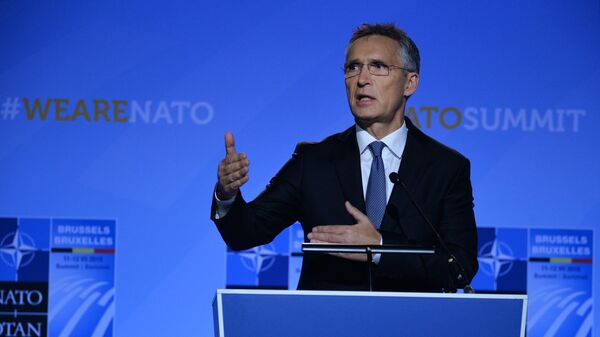Navalny is currently undergoing treatment in a German hospital after suffering a medical emergency in late August. Berlin on Wednesday said that a German military laboratory possessed undeniable proof of the 44-year-old's intoxication with a nerve agent from the Novichok group. The Russian Foreign Ministry noted in response that the German government's claims of Navalny's poisoning lacked evidence and added that it was perplexing why Berlin first addressed the EU, NATO and third parties, such as the Organization for the Prohibition of Chemical Weapons, instead of contacting Russia directly.
Lungescu took to Twitter to announce the upcoming meeting.
📣#NATO Secretary General @jensstoltenberg will address the press after the meeting of the North Atlantic Council at Ambassadorial level on the #Novichok attack on Alexey Navalny tomorrow around 12.30pm.
— Oana Lungescu (@NATOpress) September 3, 2020
The event will be live-streamed on NATO website.
➡️https://t.co/K0IWmgc6SZ pic.twitter.com/IcPtxbtddx
Kremlin spokesman Dmitry Peskov said earlier in the day that there had been no contacts between Russian President Vladimir Putin and German Chancellor Angela Merkel on the issue of Navalny. He also noted that Russia was interested in shedding the light on the situation as much as anyone else, however, Germany did not provide any information.
EU Urges Russia to Cooperate With OPCW in Navalny Case for Impartial Probe, Borrell Says
The European Union urges Russia to cooperate with the Organization for the Prohibition of Chemical Weapons (OPCW) in the situation with Russian opposition figure Alexey Navalny to ensure an impartial international investigation, EU foreign policy chief Josep Borrell said in a statement.
"The European Union condemns in the strongest possible terms the assassination attempt on Alexei Navalny. ... The European Union calls upon the Russian Federation to fully cooperate with the Organisation for the Prohibition of Chemical Weapons (OPCW) to ensure an impartial international investigation," the statement says.
The EU is calling for an international response to the situation with Navalny and reserves the right to impose sanctions, Borrell added.
The EU will continue to closely monitor the situation and consider possible implications, he said.


